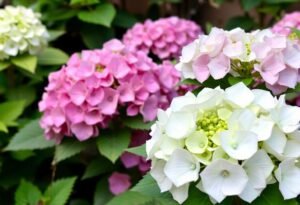Understanding Black Aphids
Black aphids, scientifically known as Aphis fabae, are small insects recognizable by their dark color. They feed by sucking out the sap from plants, which leads to weakened plants and eventual death. Additionally, black aphids can transmit various viral diseases, making them a formidable threat to your beloved greenery.
Why Are Black Aphids a Problem?
Understanding why black aphids pose a serious threat is vital for effective control. These pests reproduce at an alarming rate, turning a small issue into a major infestation in a very short time. Their presence can cause leaves to curl and distort, leaving plants more susceptible to other stressors like drought or fungal diseases.
Identifying Black Aphids
Detecting black aphids isn’t challenging if you’re vigilant. Look for these pests on young shoots, leaves, and flowers. They often appear as small, dark droplets clinging to the surface of the plant, and when numerous, they can cause the leaves to become distorted or curled.
Natural Methods to Combat Black Aphids
Instead of resorting to chemical pesticides, always consider natural methods to eliminate black aphids. Soap solutions can be effective, and introducing natural predators like ladybugs can help keep aphid populations in check. Additionally, planting companion plants such as mint and lavender can act as natural deterrents against aphids.
Protecting Plants from Black Aphids
Prevention is crucial in the fight against black aphids. Regularly inspecting your plants can aid in early detection. Maintaining healthy soil and ensuring proper watering can also help minimize the risk of these pests infiltrating your garden.
When to Use Chemical Pest Control
Sometimes, the use of chemical pesticides may be necessary. It’s essential to choose products that effectively target black aphids while being safe for your plants. Always follow the dosage instructions closely and apply them during the recommended times to maximize their effectiveness.
Conclusion
Dealing with black aphids can be a daunting task, but it’s certainly manageable with the right approach. By practicing regular monitoring, utilizing natural pest control methods, and ensuring robust plant protection, you can significantly reduce their impact on your garden. Let’s take proactive steps to nurture our plants and enjoy the bounty our gardens provide!
Disclaimer
This article is for informational purposes only. Always consult a pest control specialist before using any pest control methods.

















